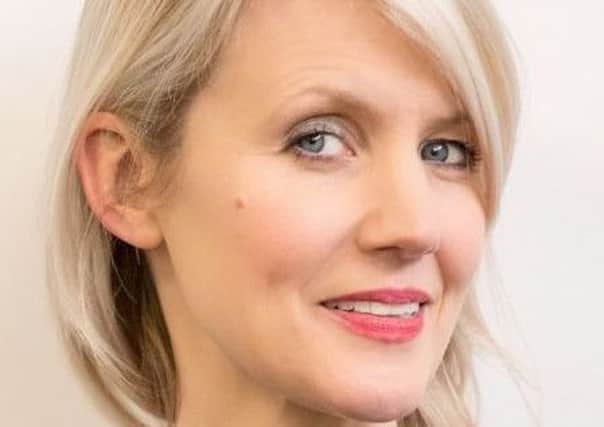Book review: The Century Girls, by Tessa Dunlop


Ramsay, who has lived in the capital’s Corstorphine district for more than 80 years, is one of six women who bare their souls – and the stories of their remarkably long lives – to Scottish author and broadcaster Tessa Dunlop in her latest book, The Century Girls. Historian Dunlop was introduced to Ramsay after a friend – who knew of the author’s search for suitable century-old women to interview for her new book – met her as she bought a tea towel in a craft shop in Iona where Ramsay was on holiday.
Perthshire-born Dunlop, who is studying for a PhD alongside her broadcasting career, previously told the stories of The Bletchley Girls, about women who worked at the code-breaking base during the Second World War. Many of her subjects for that book were already known for writing their own memoirs. In contrast, the new volume contains otherwise forgotten tales of ordinary women spanning the social spectrum. Published to coincide with the 100-year anniversary of the Representation of the People Act, which granted women over the age of 30 the right to vote, the book offers a highly personal insight into British society over the past century.
Advertisement
Hide AdAlongside Ramsay, who moved to Scotland from British India after marrying a Scottish seaman, Dunlop’s “Century Girls” include domestic servant Edna Cripps; Olive Gordon, originally from British Guiana, who was one of the first black women to migrate to London after the war; Cambridge academic Joyce Reynolds, who is still working, aged 99; Bohemian, pioneering career woman Ann Baer, who remained single until later in life; and Helena Jones, a teacher from a Welsh crofting family.
The frank, probing style of Dunlop’s interview technique allows us access to a series of revealing and enlightening stories which would otherwise have been lost. Not shying away from topics such as sex and relationships, the women, some of whom admit they have previously been reticent about personal matters, appear happy to open up to the author. Dunlop, who is probably best known for her appearances as a presenter of the BBC’s Coast series, has, you get the sense, become a friend to many of them: she mentions in the acknowledgements section how the women were all a comfort to her when she lost a midterm pregnancy while writing the book.
Ramsay arrived in Scotland in 1941 with an unusual English-Indian accent and ended up as a welfare officer in a munitions factory in Corstorphine, having turned down a nursing job which would refuse her leave when her husband’s ship came to shore. Her memories of settling into Scotland, where her husband’s strongly Presbyterian parents were less than welcoming, include a battle of wills with local workers at the factory over regulations which required them to wear hairnets.
“[They were] very rough Leith girls, I couldn’t understand a word they were saying and they couldn’t understand me!” she recalls.
Reynolds, is an honorary fellow at the Cambridge college where she has worked since 1951, and only a broken hip in her nineties curbed her field work. She went on a working trip to Libya just ten years ago.
Meanwhile, Cripps, who has never travelled outside of England, rejected the Queen’s offer of a 100th birthday card on the grounds that a card sent by a stranger meant nothing.
Advertisement
Hide AdDunlop manages to capture these unique personalities in her book with a touching intimacy that never strays into sentimentality.
“You haven’t got an end for your book because I haven’t died yet,” 103-year-old Baer gleefully tells the author. And with these women’s strong-minded attitudes and physical hardiness, I wouldn’t be surprised if that remains the case for a while yet.
The Century Girls, by Tessa Dunlop, Simon and Schuster, £20